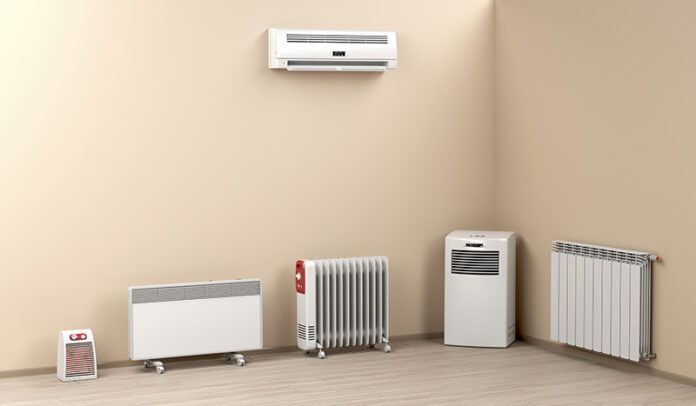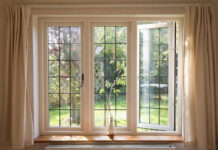Air conditioning units are essential in regions where temperatures fluctuate significantly, especially when the weather tends to be unpredictable. With the right AC unit, you can create a comfortable and refreshing atmosphere in your home, regardless of the outside temperature. However, it’s always been a top priority for homeowners to get the best possible AC unit for their needs. This means that the question of which AC unit is the best for their home is always on their minds.
In this article, we’ll go over seven different types of AC units that are available on the market, so that you can make an informed decision when choosing the best unit to get your home AC ready for summer.
7 different types of AC units you can get installed
Many different types of AC units are available on the market today, each with its own unique features and benefits. From window units to central air systems, from split ACs to ductless mini-splits, there’s something for every home and every budget.
1. Window air conditioners
Window air conditioners are inexpensive and easy to install, making them an excellent option for many homeowners. These air conditioners are designed to fit inside a window, often with a sliding panel that allows you to open & close the window as you please, even when the unit is running. It makes them a great choice for renters or homeowners who cannot install a full-sized air conditioner in their homes.
Window units can come in many sizes and BTU ratings, so you can easily find one that is designed to meet your cooling needs. This type of AC can be either single or double-hanged, depending on the size of your window.
2. Central air conditioners
Central air conditioning systems are one of the most used ACs when it comes to cooling large spaces. It consists of a compressor installed in your home’s exterior wall, along with a series of ducts running throughout your home. These ducts are designed to be hidden within the walls of your home and provide an excellent cooling effect.
Central Ac is a great choice if you want consistent air quality throughout your home. Since the air is being filtered and circulated through your home’s ductwork, you can rest assured that every room in your home will be at roughly the same temperature.
This system often consumes less energy than window units, making it an excellent choice for homeowners trying to minimize their energy expenditures.
3. Ductless mini-split air conditioners
Ductless mini-split air conditioners are an energy-efficient alternative to traditional central air conditioning systems. These high-tech units are comprised of an indoor unit and an outdoor unit that is connected by a conduit containing electrical wiring, refrigerant tubes, and condensation drainage.
The indoor unit is typically mounted on a wall or ceiling in the space to be cooled, while the outdoor unit is placed outside the building. They provide cooling and heating for a single room or multiple rooms by using a single outdoor unit connected to multiple indoor units.
Mini-split air conditioners are efficient and quiet, making them a smart option for homeowners who may live in close quarters. Additionally, these air conditioners are quite simple to install.
4. Portable air conditioner
Portable air conditioners are designed to provide cooling in a specific room or small space, making them an excellent pick for small-space households. This type of air conditioner is small and lightweight, making them easy to move from room to room. They can be placed on a table or floor; some models even come with wheels for easy movement.
Most portable air conditioners are easy to set up and use and can be programmed to turn on and off at specific times. Some models even come with remote controls to adjust the temperature from anywhere in the room.
5. Floor-mounted air conditioner
Floor Mounted Air Conditioners are an excellent choice for apartments or other areas with limited space. With a range of styles and sizes available, these reliable units can cool any size room quickly and easily. Many of these models also come with energy-saving features like timers and temperature settings, allowing you to save money on your energy bill.
Floor-mounted air conditioners don’t require any major installation. Additionally, these models are incredibly easy to maintain, with removable filters and other features designed to do cleaning and servicing a breeze.
6. Geothermal air conditioner
Geothermal air conditioning is a new concept and is becoming more popular with homeowners looking for an efficient way to heat and cool their homes. This system uses the insulating property of Earth and takes advantage of the constant temperature just below the surface, usually four to six feet down. It is a closed-loop system that pumps air through the geothermal heating and cooling coils to distribute heat or cooling throughout your home effectively.
Geothermal ACs work on renewable energy and have a minimal environmental impact. They are efficient enough to save up to 70% of energy compared to traditional air conditioning systems. They are also cost-effective in the long run as they require less maintenance and repair than conventional HVAC systems.
7. Dual fuel air conditioner
Dual Fuel Air Conditioners are the perfect solution for those looking for an efficient, low-cost way to cool their homes. This air conditioner combines an electric compressor and a natural gas furnace to provide maximum cooling efficiency.
The dual-fuel system allows you to take advantage of the lower electric rates during the summer while still providing natural gas heat during the colder winter. It makes dual-fuel air conditioning systems one of the most cost-effective cooling solutions. With a dual-fuel air conditioner, you can rest easy knowing that your home will be comfortable no matter what the temperature outside.
Endnote
Now that you are aware of the variety of AC units available to choose from, it should be easy to find an AC that best fits your budget and lifestyle.
Moreover, the cost of installation of an AC unit depends on the type of unit you select and other factors such as local labor costs and AC maintenance costs over time. Consider your budget, energy efficiency, room size requirements, and other variables before purchasing to get the most out of your AC unit for the years to come.
Read also: The Most Common Commercial Heating Systems



































































